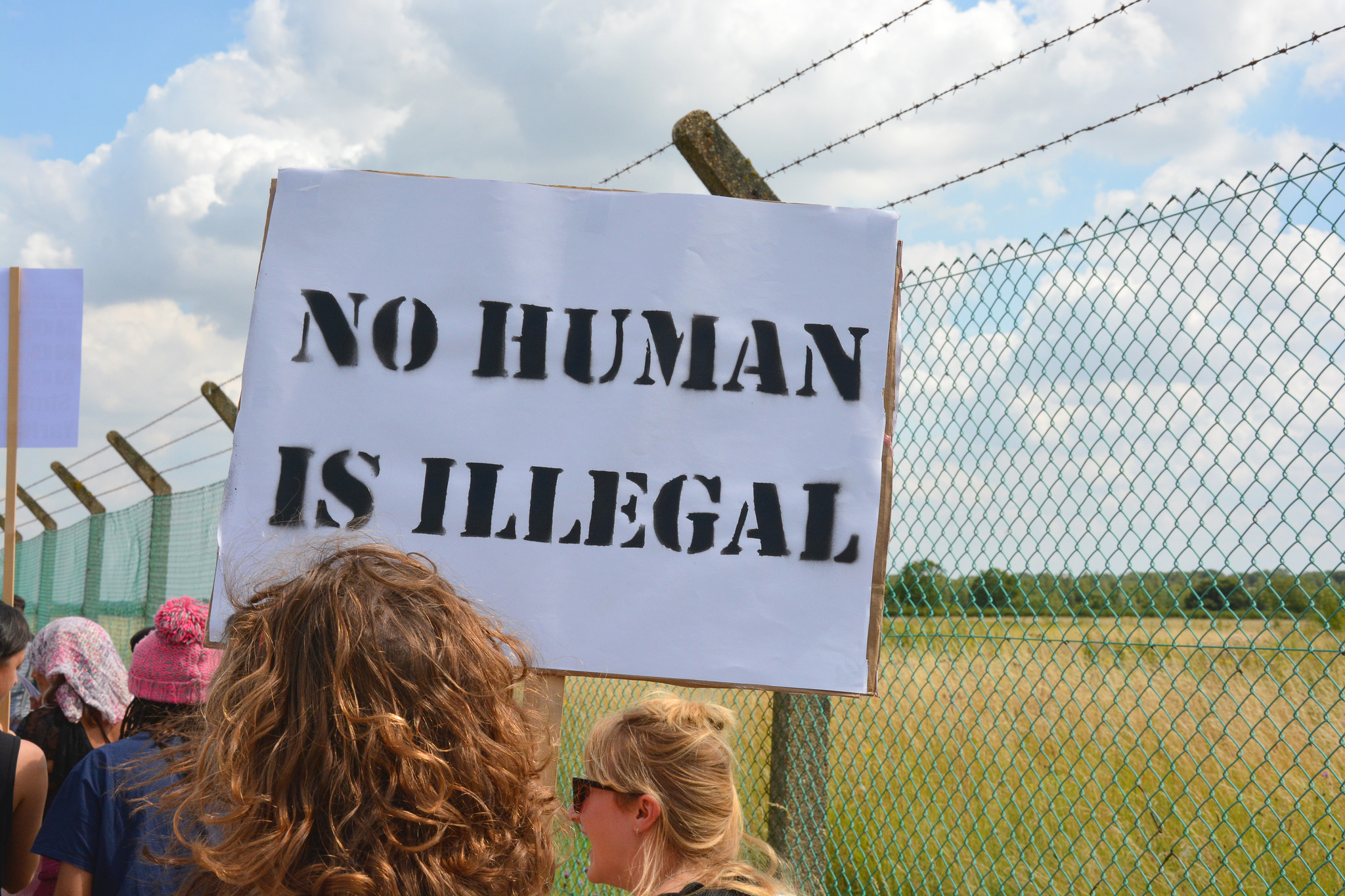
Today, the British Medical Association issued a report calling for the closure of immigration removal centers. They’re bad for the detainees’ health. The British Medical Association, or BMA, “is the voice of doctors and medical students in the UK. It is an apolitical, professional organisation and independent trade union, representing doctors and medical students from all branches of medicine across the UK and supporting them to deliver the highest standards of care.” While nothing in the report is particularly new, it’s the first time the doctors’ union has formally acted.
According to the BMA, “The UK operates one of the largest immigration detention systems in Europe. It holds around 3,500 individuals in 11 immigration removal centres (IRCs) at any one time. There is no fixed time limit on immigration detention in the UK. This means detention can be for an indeterminate period. Individuals will rarely know the term of their detention. The BMA believes immigration detention should be phased out, and replaced with more humane means of monitoring people facing removal from the UK.”
The report is a study in the obvious. Detention is bad, worse for those living with mental health issues. Detention is particularly bad for the most vulnerable. The negative impacts of detention don’t end when detainees leave the prisons. The obviousness is the point. What kind of world needs yet another study to tell us that prison is bad for survivors of torture, rape, persecution, genocidal violence? What kind of world needs yet another study to tell us that the most vulnerable are most vulnerable?
What follows are excerpts from the report. Read them and weep.
“Various studies have identified the negative impact of immigration on mental health, and that the severity of this impact increases the longer detention continues. Depression, anxiety, and post-traumatic stress disorder (PTSD) are the most common mental health problems, and women, asylum seekers, and victims of torture are particularly vulnerable. Even if it does not reach a clinical threshold, all immigration detainees will face challenges to their wellbeing during their time in detention.”
“Detention can be especially detrimental to the health of more vulnerable individuals (including children, pregnant women, victims of torture, and those with serious mental illness) who should only be detained in exceptional circumstances.”
“Women:
–– Various bodies of work show increasing evidence that women in detention have distinct needs and particular problems and vulnerabilities.
–– Pregnant women have specific health needs, and can be particularly vulnerable in detention. [NB: Pregnant women are identified in the Home Office guidance asbeing particularly vulnerable to harm in detention.]
–– Women experience the same prior traumatic experiences as men, but can also experience trauma that is specific to women, such as female genital mutilation (FGM). They are also more commonly, but not exclusively, the victims of domestic or sexual violence, or trafficking. They are therefore likely to require care and interventions that acknowledge the differences in their experience and context. [NB. Victims of sexual or gender-based violence (including FGM) or victims of human trafficking or modern slavery are identified in the Home Office guidance as being particularly vulnerable to harm in detention.]
“–– Immigration detention has a negative impact on mental health;
–– The severity of the impact on mental health increases the longer detention continues;
–– Depression, anxiety and post-traumatic stress disorder (PTSD) are the most common mental health problems;
–– Women, asylum seekers, and victims of torture are all particularly vulnerable groups; and
–– The negative impact on mental health persists long after detention.”
“Retraumatisation can take on specific forms. Female asylum seekers, for example, report higher levels of sexual assault and gender-based violence, yet are frequently detained in centres with male custody staff, where a number of allegations of sexual assault have been made. The Home Office has continually refused to release details of the allegations or the outcomes of investigations. The detention environment may also be particularly retraumatising for LGBT individuals, many of whom will have faced persecution, victimisation, and violence as a result of their identity.”
The United Kingdom has 11 immigration removal centers: Brook House, Campsfield House, Colnbrook, Dungavel House, Harmondsworth, Larne House, Morton Hall, Pennine House, The Verne, Tinsley House, and Yarl’s Wood. They are factories for the production of trauma, and the assembly line is speeding up. The time for “concern” is over. The 11 black sites are a constellation of abomination: bad for the health of detainees, democracy, and humanity. Tear them down now. Shut Yarl’s Wood, shut all 11 centers, and shut their fraternal order of detention centers across the “free world”. Do it now! The doctors have spoken.
(Photo credit: The Justice Gap)